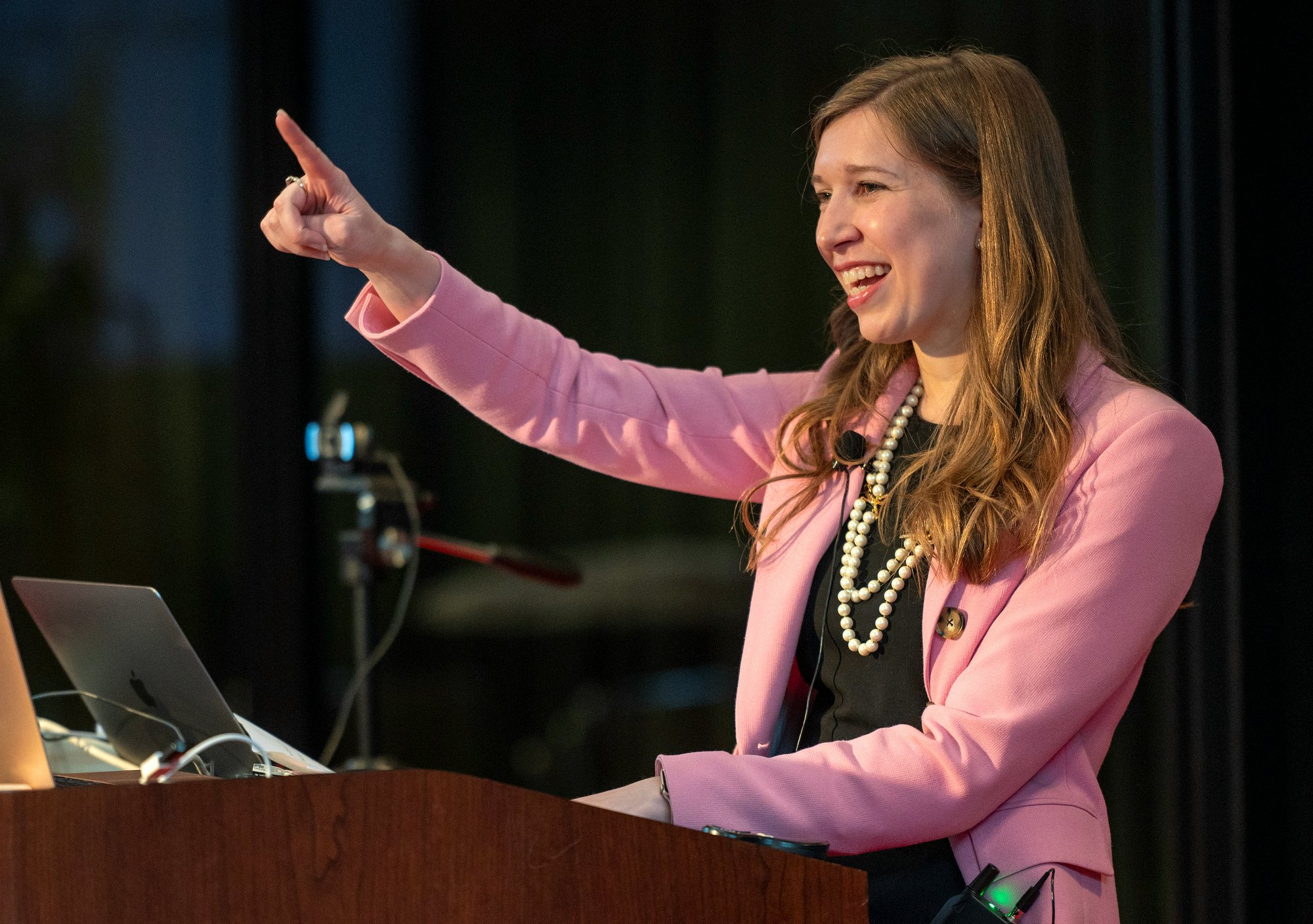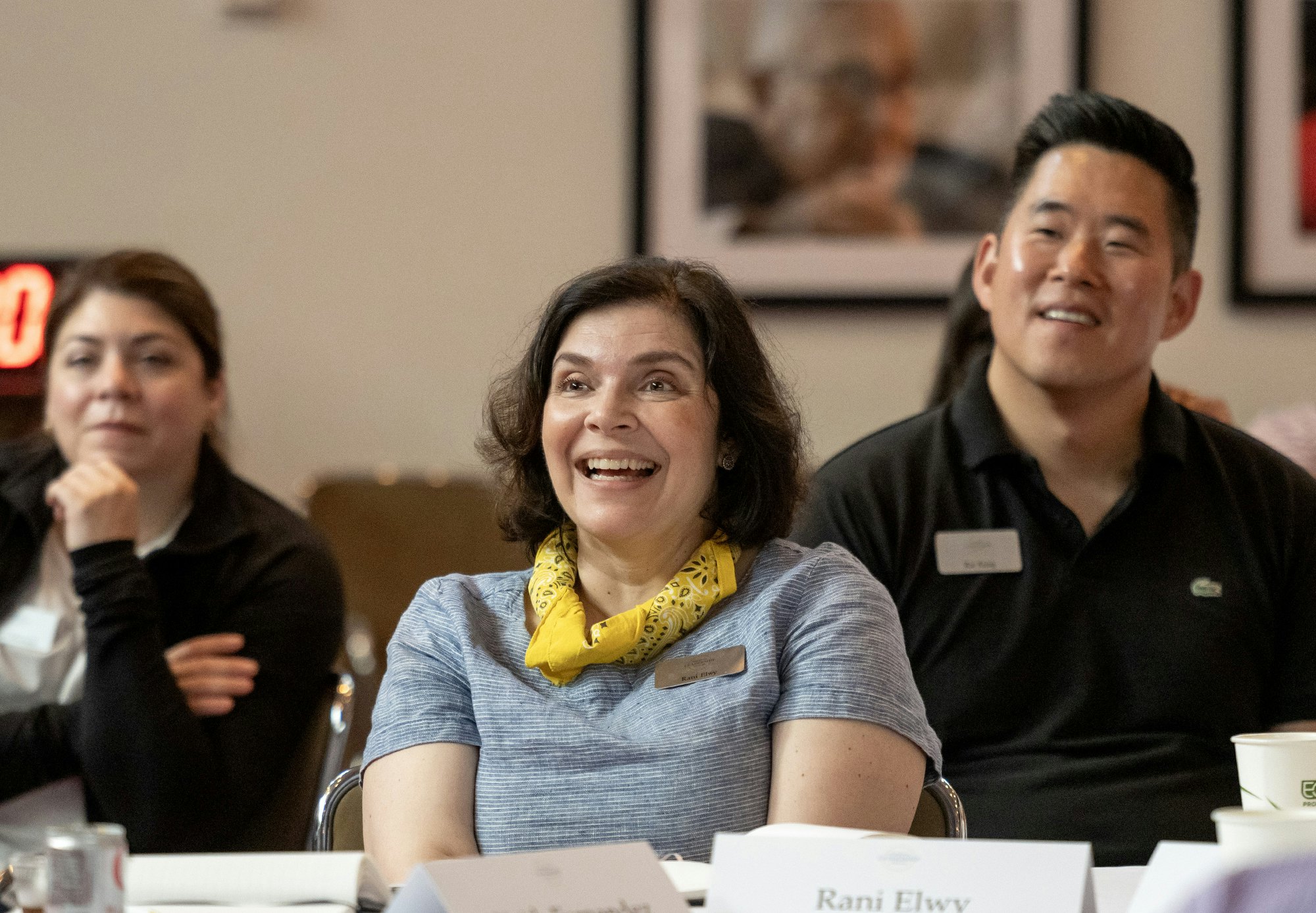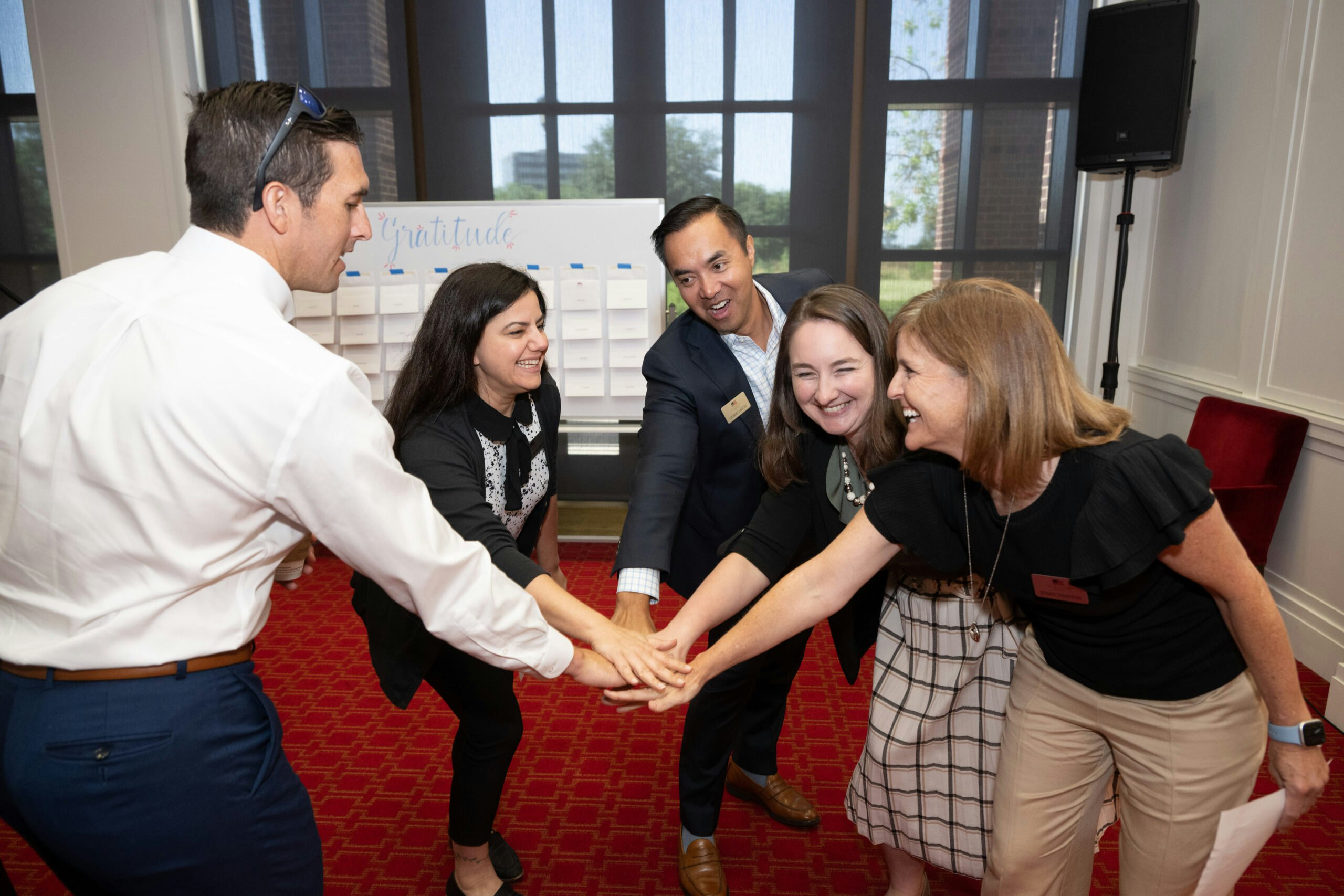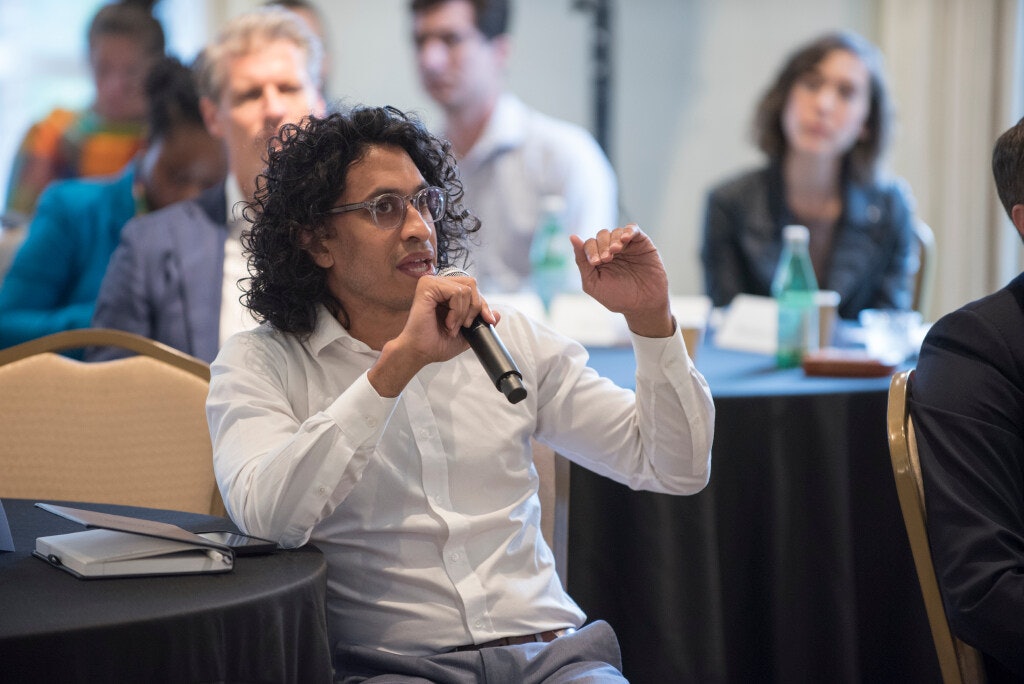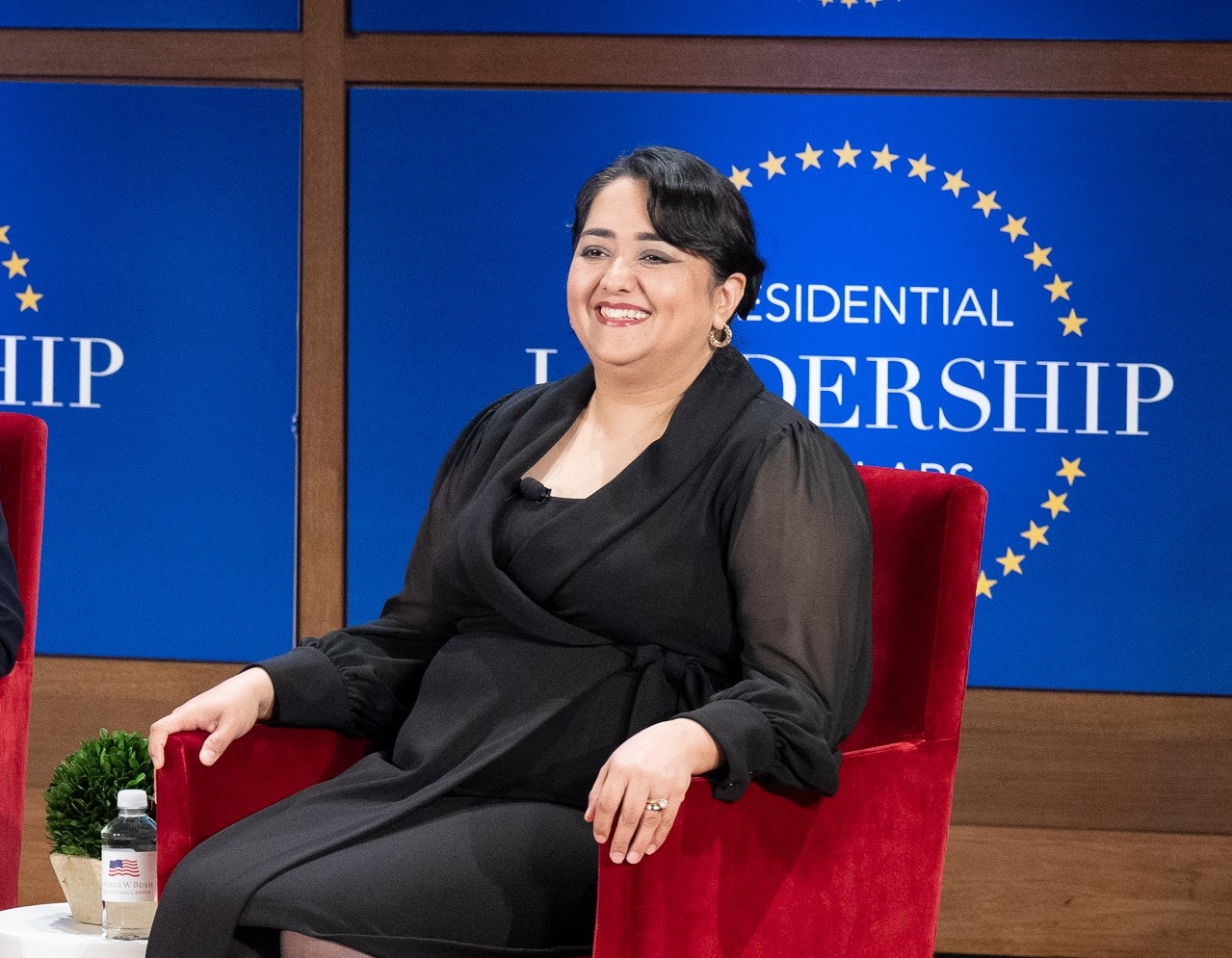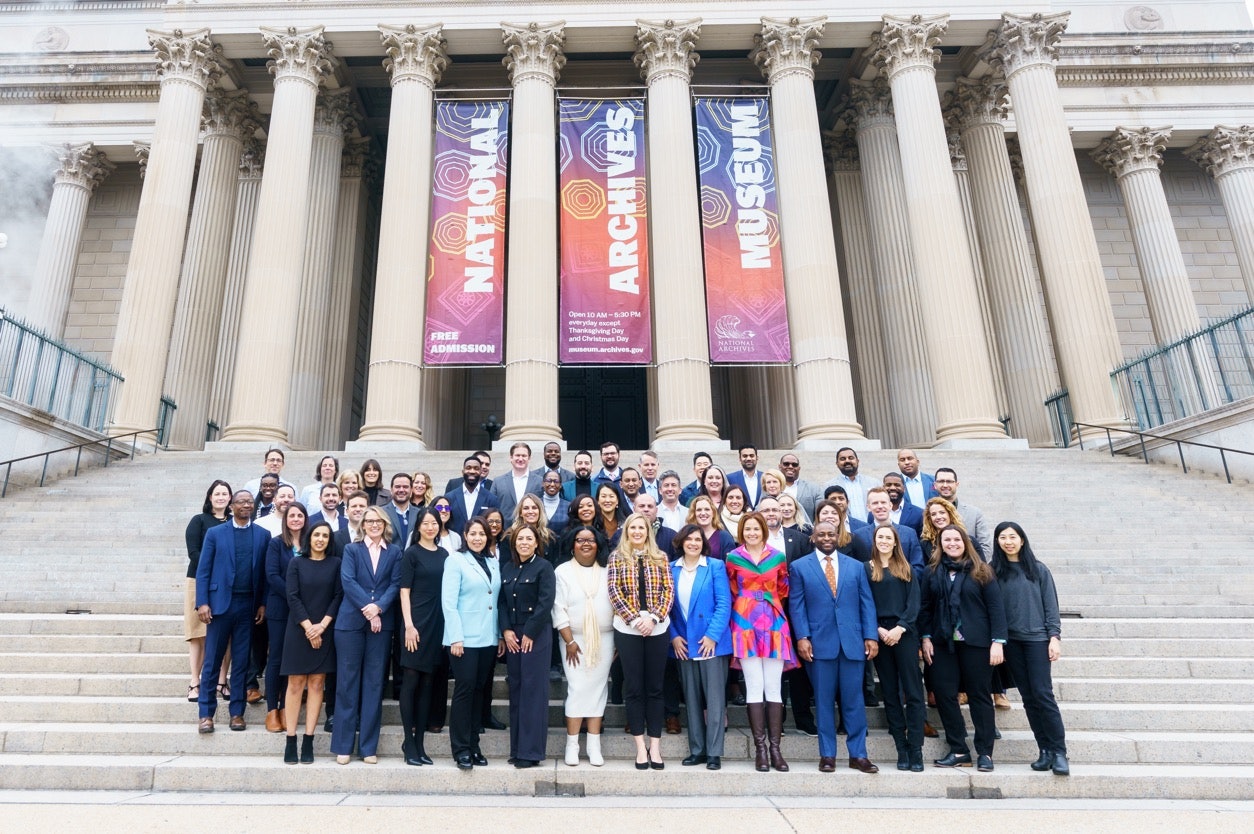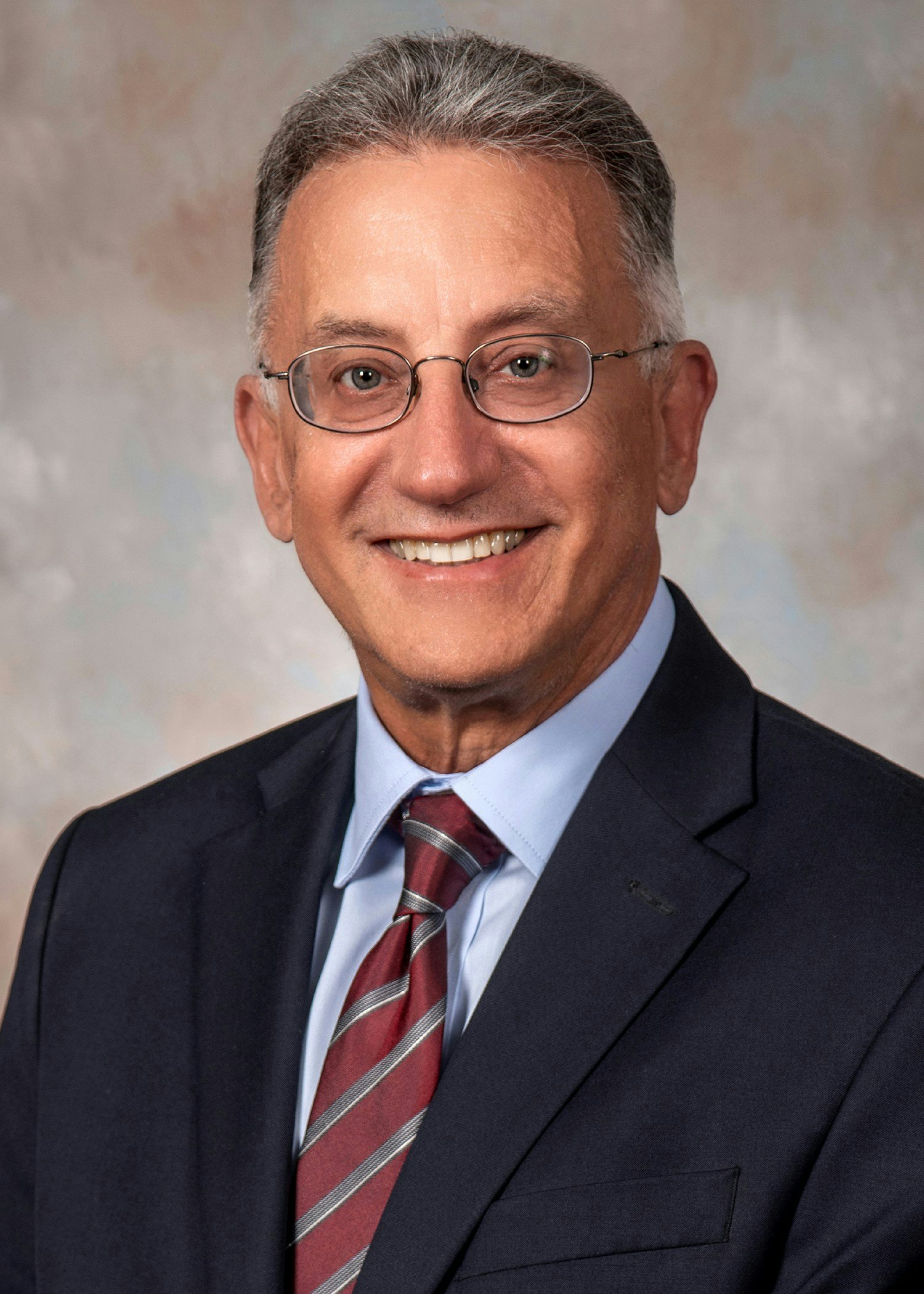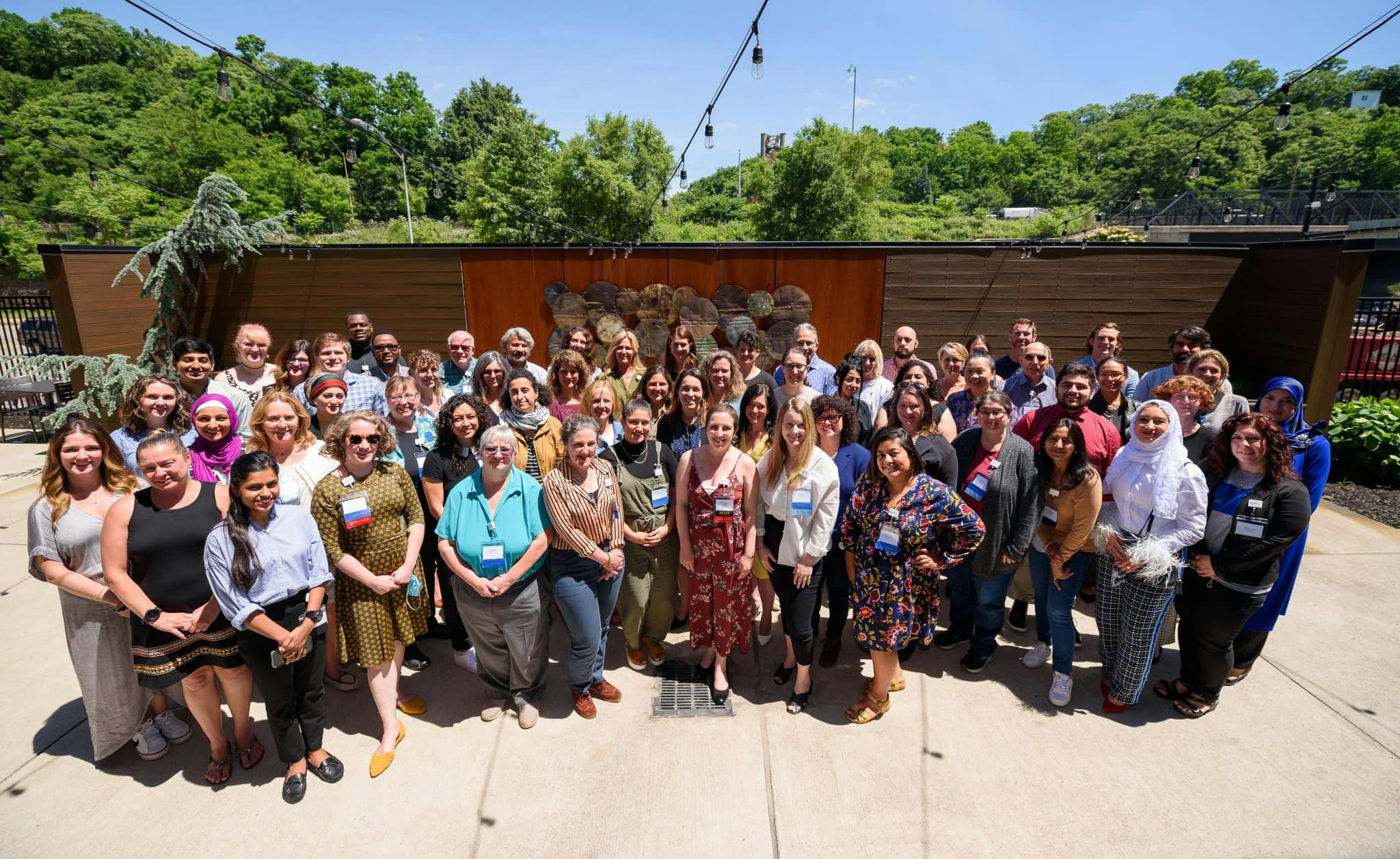This article was previously published in White Rock Lake Weekly.
Imagine calling 911 with a real emergency and being told no one was available to help.
Dallas Fire-Rescue Deputy Chief Steve Lopez knows personally how important emergency response times can be. His mother “was being beaten by a lot of boyfriends” when he was young. He recalls being “8 years old and jumping out of window” after moving to a new apartment to call 911.
Wanting to help others is one of the main reasons Lopez became a firefighter, EMT, and paramedic more than 20 years ago. Now he’s focused on making sure others receive that help as quickly as possible.
Lopez, a 2023 Presidential Leadership Scholar (PLS) who oversees training, professional development, and fleet maintenance for Dallas Fire-Rescue, discovered the shortage of mechanics was threatening the department’s ability to respond to emergency situations. He hoped to solve the issue through his time in the PLS program, which brings together a diverse group of bold and principled leaders who are committed to facing critical challenges at home or around the world and are interested in exploring leadership through the lens of the presidential experiences of George W. Bush, Bill Clinton, George H.W. Bush, and Lyndon B. Johnson.
“When we don’t have mechanics to work on fire engines and trucks and ambulances, and then when someone calls 911, there’s no one to respond because we simply don’t have an ambulance or an engine or truck to respond,” Lopez said. “That’s simply unacceptable.”
Dallas Fire-Rescue currently dispatches initial fire engines within 5 minutes, 20 seconds for 87% of structure fire incidents, according to Dallas Open Data. But a nationwide labor shortage is threatening that response time. The National Automobile Dealer Association estimates that 76,000 mechanic job openings are available every year, though only around 39,000 workers complete training programs preparing them to fill these openings.
Lopez, who is responsible for more than 668 pieces of equipment ranging from fire engines and ambulances to staff vehicles, identified a mechanic shortage, which resulted in emergency vehicles staying out of service for longer than they should. But Lopez and his Fleet Management Team are working to minimize the impact on Dallas by overhauling the mechanic recruitment and training process.
“Our goal was to work on the shortage of the mechanics within fleet maintenance,” Lopez said. “It was a total process improvement of the way we train our mechanics, the way we recruit our mechanics, even their job descriptions and the work performed within our fleet maintenance shop.”
The approach was inspired by one of Lopez’s PLS colleagues, who recently implemented something similar in her economic development work in Mississippi.
Lopez has already made great strides. The department has adjusted job postings and reclassified all mechanic positions, resulting in pay grade increases. However, the work is not complete. The team is looking to partner with automotive technical programs within Dallas high schools to introduce the profession to students and build a pipeline of workers into the industry.
An analysis of the Dallas Fire-Rescue mechanic shortage showed the department was having a difficult time competing with the public sector in recruiting highly skilled workers. So the team is focusing on recruiting efforts and putting the right people in the right jobs.
He’s also prioritizing training for entry-level mechanics, so that they can grow within the organization and the department can keep that talent. Dallas Fire-Rescue is also investing in retaining mechanics by increasing compensation for the most skilled employees by offering an increase in their yearly tool allowance.
“With the new mechanic reclassifications and career series approach toward hiring, we can bring them in at a lower graded position and build them up to that highest graded diesel mechanic positions internally,” Lopez said.
Lopez says the team’s successes are just one example of how collaboration by PLS’s incredibly diverse cohort of leaders from across the country has become the secret sauce behind the program’s success. PLS is one of many programs at the George W. Bush Presidential Center, which is focused on ensuring opportunity for all, strengthening our democracy, and advancing free societies. Contributing to the Bush Center this North Texas Giving Day can help Scholars like Lopez become better leaders for our community, benefiting all.







